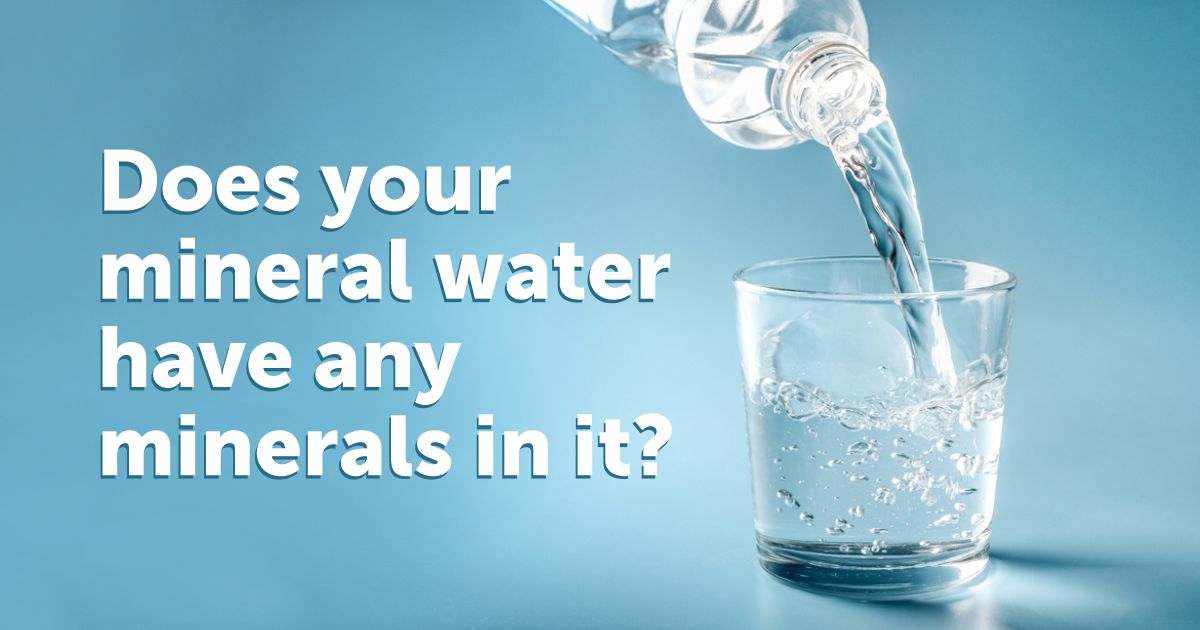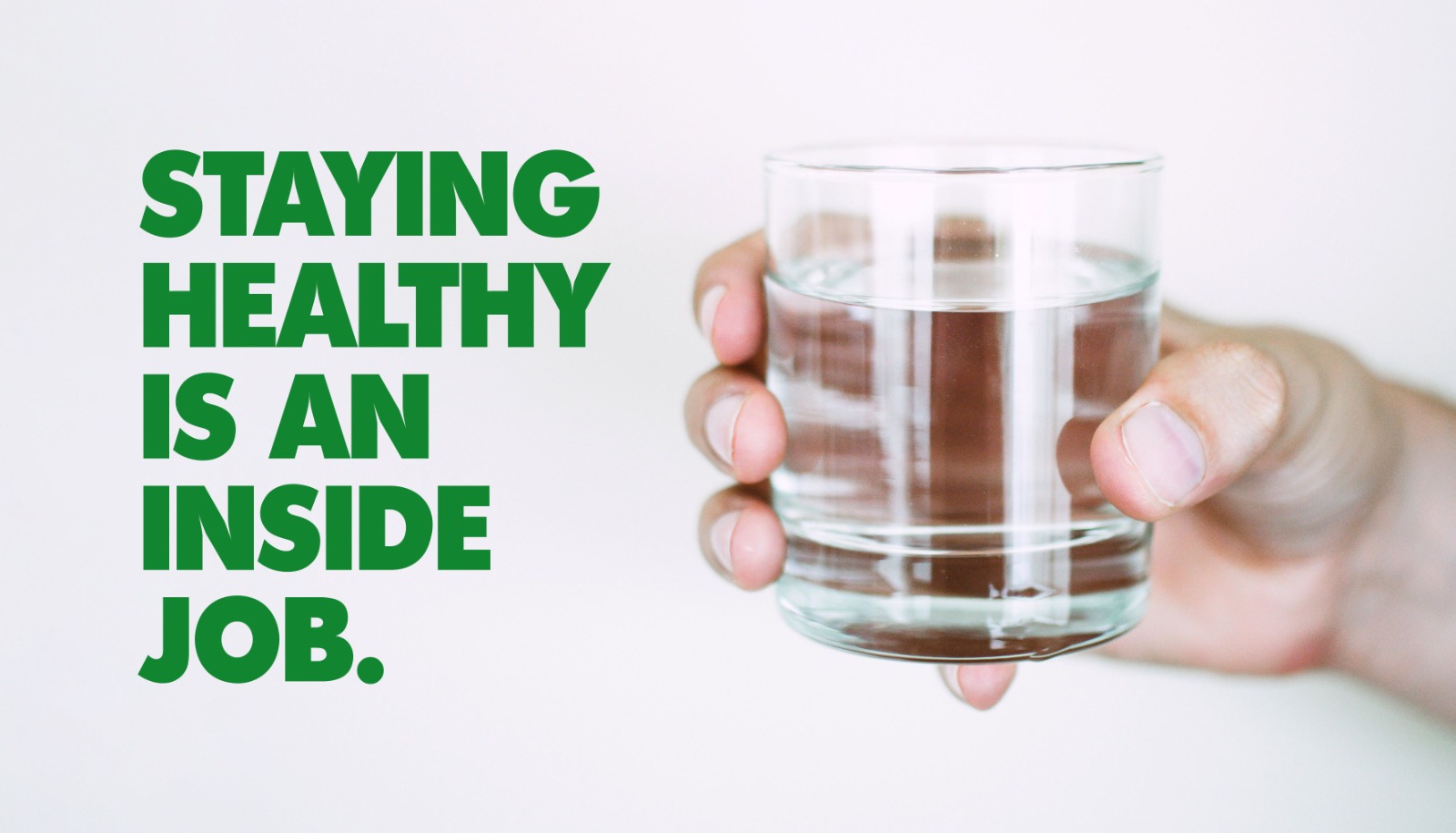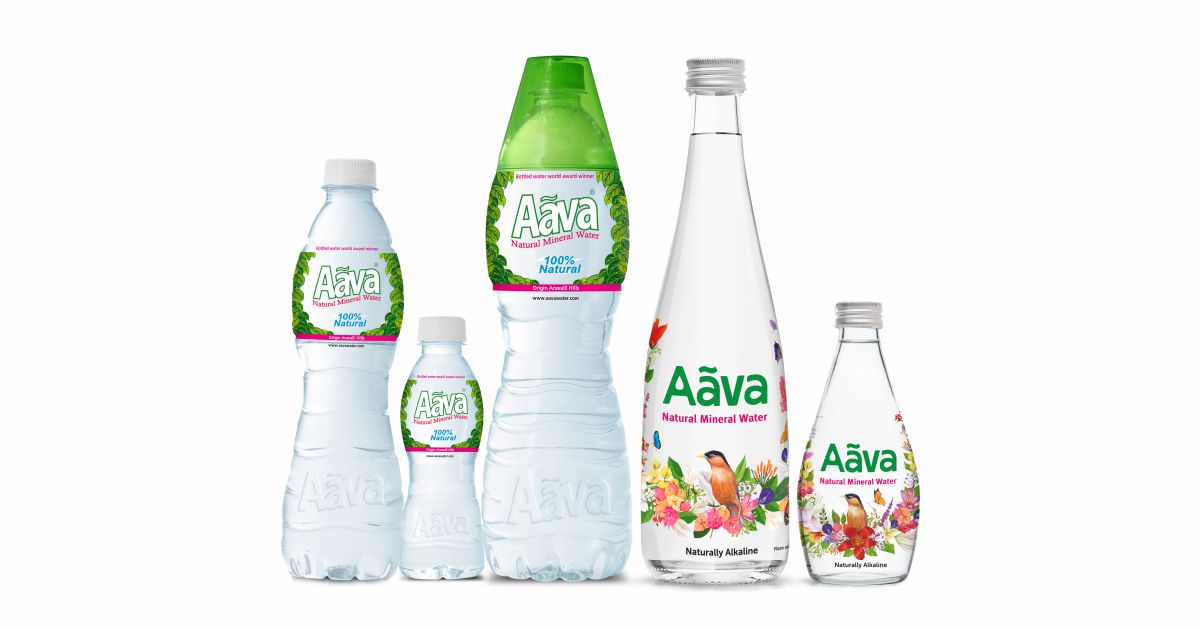Buying mineral water? Read this first.

In today’s world we have instant information at our fingertips. For example, a quick google search of “the best mineral water brands in India” will yield you multiple results in under 0.60 seconds. There are various lists compiled by publications and individuals each stating the pros and cons of different bottled water brands in India. However most lists club all bottled water as one homogenous entity, which is misleading. Not all water packaged in a bottle is mineral water. Chances are the mineral water that you are drinking doesn't even have any minerals in it.
Here’s what you can do to ensure that the next time you buy bottled or mineral water in India, you are choosing a brand and product that’s actually healthy for you and the environment at large. Is that even possible? Yes it is, your choice makes a huge difference
Bottled water vs mineral water : Know the difference
Any drinking water packaged in glass or PET bottles is classified as bottled water. The water could be sourced from anywhere, it could even be tap water or from a municipal supply. The common denominator for most is that water is purified through RO (reverse osmosis) along with other processes such as UV treatment and ozonization to increase shelf life. This is done to remove all bacteria and contaminants from the water and make it safe to consume. However, RO is a purification process that also removes all the minerals in water and rejects 74% of water. For every litre of water purified using RO, at least three or more litres is rejected. The result is bacteria-free water but it is also completely demineralised.
Mineral water on the other hand refers to water that has minerals in it. These minerals can be naturally-occurring as they are in natural mineral water like Aava. Natural mineral water is sourced from protected and confined natural sources, and bottled as drawn without any purification processes. Natural mineral water is the highest grade of water, it means that the water is microbiologically pure and pristine without the presence of bacteria and other contaminants. It only requires simple filtration to remove sand or any turbidity, but the natural mineral composition is kept intact.
What is the quickest way to tell the difference between bottled water and mineral water? Look for the IS mark and number. This is mandatory for all bottled waters in India, whether its a local brand or an international brand. If it is IS 14543 it’s bottled water purified with RO with little to no minerals. If it is IS 13428 its a certified natural mineral water. Currently there are over 6000 licenses of bottled RO purified packaged water in India, and only 28 licenses of natural mineral water.
Why are minerals essential in drinking water?
Mineral water in India has been synonymous with RO purified bottled water which ironically has no minerals in it.
In November 2003, the World Health Organization assembled a diverse group of nutrition, medical and scientists in Rome to study and determine the role of minerals aka the nutrients in drinking water. There are ample studies and literature on the contaminants in drinking water but not enough attention was paid to essential minerals such as calcium, magnesium and other electrolytes. The WHO published a document in 2005 called Nutrients in Drinking Water which compiled research and clinical trials that proved the benefits of drinking water with minerals in it. The WHO also cautions against the detrimental effects of drinking RO demineralised water long term.
In 2019 the National Green Tribunal of India prohibited RO for a TDS below 500 mg/litre and considered it a health and environmental hazard. This judgment outlined the importance of minerals for wellness and highlighted how RO causes tremendous water rejection. The order was even endorsed by the Supreme Court of India, before it was stayed. Due to this landmark judgment, the Food Safety and Standards Authority of India has now made it mandatory for all bottled water in India, even if it is RO purified packaged drinking water to compulsorily re-add minimum 10 mg magnesium and 20 mg calcium to water. This is because minerals in water are necessary for proper hydration and health.
However when it comes to minerality in water, it is important to know the difference between added minerals and natural minerals. Natural mineral water like Aava is a source of bioavailable minerals which are easily absorbed by your body as compared to added minerals. It’s important to note that minerals not only give wellness, they also give water taste.
How to choose mineral water that is healthy and sustainable?
1) Look for the IS mark on bottled water. If it is IS 13428 it is a natural mineral water like Aava, and bottled ethically as drawn. If it is IS 14543 it is an RO purified packaged water.
2) Does the bottle or packaging mention the source? This is a dead giveaway if the water is actually mineral water or just ordinary bottled water. A natural mineral water will always mention the location or origin of the source. Aava is a natural mineral water originating in the world’s oldest fold mountain range – the Aravallis.
3) Are you looking for alkalinity in your water? Alkaline water is not a new category of water, so don't be fooled by fancy names. Alkaline water can be ionized, where the pH is adjusted through electrolysis – in which case it is still classified as a packaged drinking water (IS 14543). Aava is a natural mineral water (IS 13428) that also happens to be naturally alkaline, which means this alkalinity and electrolytes come from a geological phenomena not through a machine.
4) Check the minerality. TDS refers to the minerals in water, and a TDS of 300 is deemed as excellent by the WHO. Equating TDS to water hardness is a common misconception. Hardness correlates only to the presence of calcium and magnesium. So don’t be alarmed if your drinking water has minerals, your body needs it. Demineralised, distilled and low TDS water is better suited for your washing machine, not for your health and wellness.
5) Taste it. Taste and flavour are used interchangeably but they are not the same. Flavour is not in the food or beverage, but rather in our brain (Spence, 2017). Hence, a food or water could have the same taste, but the flavour experienced will be subject to the experience of the person consuming it. This is subjective, and so you must always taste and determine whether the minerality is to your liking, since water is the most consumed food and beverage.
6) When it comes to bottled water and sustainability there are two important aspects - the water itself and the packaging. Natural mineral water like Aava has the lightest water footprint of any packed beverage since it is bottled with zero water rejection, and bottled directly as drawn. RO purified packaged water is safe to drink, but this comes at the cost of tremendous water wastage and no health benefits. When it comes to the packaging it’s important to choose a bottled water brand that outlines their waste management policies. For example, Aava water has recycled 75 million PET bottles under the EPR regime using cloud recyclers and an in-house ecosystem. The other option available is glass bottles which can be infinitely recycled.
Can bottled water ever be a sustainable choice? Yes it can. Water is the primary ingredient and raw material in every beverage, every industry on the planet. If you choose a mineral water that is ethically bottled and the brand you choose is efficiently managing waste, it’s a healthy choice for you and the planet.

07/04/2023
On World Health Day, know the Value of Water for your Wellness.
Drinking water should contain natural minerals & carbonates like Aava does, because these nutrients are essential for wellness. Drinking demineralised water everyday is not considered ideal as per the World Health Organisation.

03/12/2022
Everything You Need to Know About Naturally Alkaline Mineral Water
Buying alkaline water in India? Make sure it's naturally alkaline mineral water like Aava that's mineral rich and bottled with zero water rejection


